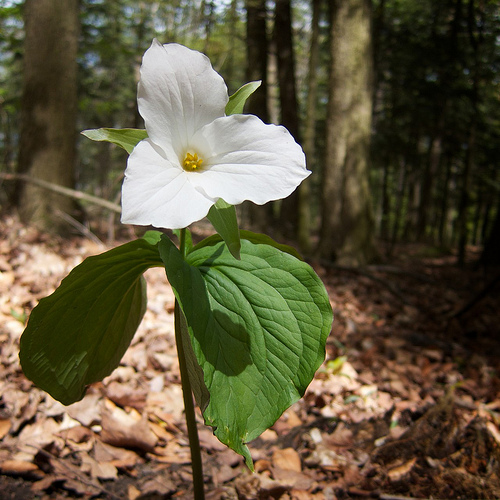When Mom “submits” a poem to me for publication, a dialogue begins. Since every word in a poem is important, we evaluate what Mom has written. What exactly does she mean by line X? How does the use of word Y shape the message of the poem? What would happen if we changed a semi-colon here, an image there, or a few punctuation marks? Does the title prepare the reader for the poem or capture something of its essence?
We don’t have any checklist for proofreading. Rather, I simply act as another set of eyes and ears, telling Mom my experience of reading her words and raising questions for her to consider. Sometimes she has her own questions about her writing efforts, wondering how she might best communicate her thoughts, or if her thoughts need improvement. Mom welcomes and values this interchange, because she knows that every word is important. And because every word is important, it is not uncommon for a few words to change before we publish Mom’s poem.
Not so with God’s words. Because every word of God is important, yes, we ask tough questions about these words and, yes, we dialogue with the Author. But when all is read and done, not a word is changed.
So here is Mom’s poem for June, with her own reflections. And here are the rest of the poems in this monthly series. Blessings as you read!
While preparing this poem post I received a newsletter from the Canadian branch of Christian Aid Ministries. Their article on the need for Bibles in Liberia put a new face on the message of this poem. In Liberia not even all pastors have Bibles, so some preach only what they have been told, opening the door to serious error in their teaching. The humid climate causes books to tear easily so it is not unusual for Bibles to have pages or even entire books missing.
After a teaching workshop, pastors were distressed to learn that they had been living immoral lives, unknowingly disobedient to God’s Word. What a vivid illustration of the need to feed on and live out all of God’s Word! It is also a call for us to do what we can to make the whole Bible available to the whole of humanity.
BY EVERY WORD
By every word your Heavenly Father spoke—
By every word—your soul is made alive,
And by each word alone shall it survive:
The words of law that by your deeds you broke,
Those words that to a sense of guilt awoke;
The words of grace that in your heart revive
A hope of pardon; doctrine to derive
A base for faith; exhortings that provoke
To deeds of charity and righteousness.
By every word–just as by every star
The vaulted sky in darkness can be known.
Just as the varied foods God gave to bless
And nourish bodies, so all God’s words are.
Man was not meant to live by bread alone.
—Elaine Gingrich, November 2, 1999
“Man shall not live by bread alone” (Matt. 4:4). It was this line that was the poetic impulse for the poem. I am a mother with menu planning on my list. Is that why I read a double meaning into those words?
Jesus continues his quote from Deuteronomy: “but by every word that proceedeth out of the mouth of God” (italics added).
In Deuteronomy 8:1-3 God teaches us that we are not kept alive only by the bread we bake. The Israelites were living inside an object lesson that taught them that their very existence depended on the words God spoke to keep them alive. But they were also being reminded that we humans are more than physical beings.
Israel lived in the wilderness on manna, angels’ food, bread from heaven, uncultivated by man, something foreign to them and difficult to label. So they called it manna–“What is it? a whatness.” It was not a diet of their own choosing. By God’s word it was given and according to His commandment it was gathered.
Was God not saying to them: “By my word I have fed your bodies from heaven, and even so I will keep your spirits alive as you eat my spiritual food. And not just the food that you choose to eat. When you obey all my commandments you will learn that your souls, too, live ‘by every word of God.’”? “The whole commandment that I command you today you shall be careful to do…” (Deut. 8:1).
In 2 Timothy 3:16 Paul wrote to Timothy that “all Scripture is given by inspiration of God and is profitable…” We need “all Scripture” if we want to be competently equipped for serving God. Not just our favourite passages or pet topics or preferred doctrines.
God humbles us with manna, unfamilar food that is difficult for us to comprehend, in order to test us and prove our faith and our willingness to believe and obey all that God has spoken. We don’t have the luxury of being picky eaters, of being children that refuse to eat our vegetables, or never progress from milk to meat (I Cor. 3:1-2; Heb. 5:11-14). Our Heavenly Father knows what we need. Man does not live by bread and milk alone.
Did you enjoy this sonnet? What words do you have to add to this discussion? Leave a comment here for Mom, or send her an email at ![]() . Thanks!
. Thanks!



